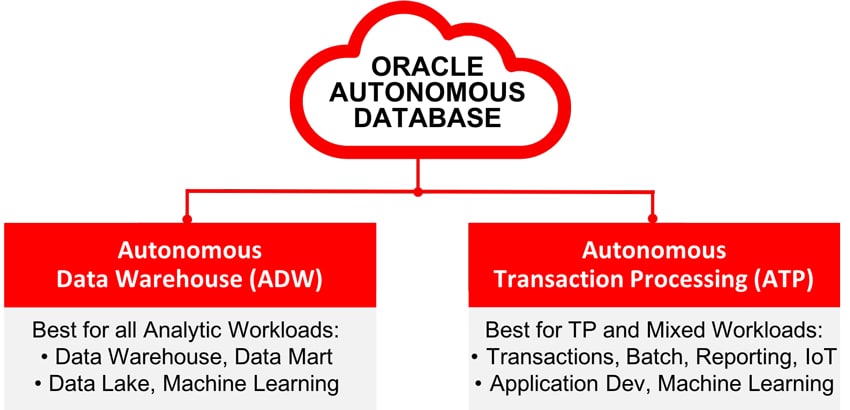
Oracle OpenWorld is happening right now in San Francisco and the company is announcing several new innovations to is data management portfolio. The innovations announced center around making easier, faster, and safer for customers to run their mission critical workloads with Oracle, be in in the cloud, on-premises, and via Exadata Cloud at Customer. Not only has Oracle innovated on several of its products, it also announced several partnerships.
Oracle’s big thing over the last few years has been autonomous. Chiefly its Autonomous Database (that has seen very good worldwide adoption) but also Oracle Autonomous Transaction Processing and Oracle Autonomous Data Warehouse. For its Autonomous Database, Oracle is expanding the capabilities once more. The company is now offering a dedicated deployment option for Oracle Autonomous Database. This option will give customers high levels of security, reliability, and operational control regardless of the class of database workload.
Other Autonomous Database news include the latest release of Enterprise Manager. The new release of Enterprise Manager provides expanded support for Oracle Autonomous Database. Through Enterprise Manager, users can migrate their on-prem workloads, simply, to Oracle Cloud, including Autonomous Database. Oracle Autonomous Database (as well as Oracle Cloud Infrastructure) are now available as Always Free services for developers, students, educators and organizations. Specifications include:
- 2 Autonomous Databases (Autonomous Data Warehouse or Autonomous Transaction Processing), each with 1 OCPU and 20 GB storage
- 2 Compute VMs, each with 1/8 OCPU and 1 GB memory
- 2 Block Volumes, 100 GB total, with up to 5 free backups
- 10 GB Object Storage, 10 GB Archive Storage, and 50,000/month API requests
- 1 Load Balancer, 10 Mbps bandwidth
- 10 TB/month Outbound Data Transfer
- 500 million ingestion Datapoints and 1 billion Datapoints for Monitoring Service
- 1 million Notification delivery options per month and 1000 emails per month
Keeping with its Autonomous theme, Oracle has automated data protection with Oracle Data Safe, Oracle Cloud Guard and Oracle Maximum Security Zones. Running in the background, these systems enforce security practices while analyzing for potential future issues. Not only do these systems run on their own finding and fixing nefarious issues like anomalous behavior and risks they also spot surfacing misconfigurations.
Oracle announced what it is calling the world’s first autonomous operating system with the release of Oracle Autonomous Linux. This new OS eliminates human error which can improve security and drastically reduce costs. All important, but tedious tasks, will now be taken care of immediately keeping systems up to date and freeing IT to focus on more important issues. Oracle also introduced Oracle OS Management Service, a highly available Oracle Cloud Infrastructure component that delivers control and visibility over systems whether they run Autonomous Linux, Linux, or Windows. OS Management Service furthers automation on common management tasks such as patch and package management, security and compliance reporting, and configuration management. Other benefits include:
- Eliminate manual OS management—World’s first autonomous operating system in the cloud to deliver automated patching, updates, and tuning without human intervention. Based on a preconfigured Oracle Linux image; automated daily package updates; enhanced OS parameter tuning and OS diagnostics gathering.
- Deliver automatic, in-depth protection at all levels—100 percent hands-off automatic security updates daily to the Linux kernel and key user space libraries. This requires no downtime along with protection from both external attacks and malicious internal users. Known Exploit Detection provides automated alerts if anyone attempts to exploit a vulnerability that has been patched by Oracle.
- Provide always-on availability—Includes automated patching and upgrades while the system is running, eliminating unnecessary downtime for users and the system.
Oracle also mentioned partnerships. Oracle has partnered with Intel to add Optane DC persistent memory to its Exadata X8M. The company also partnered with VMware putting VMware Cloud Foundation on Oracle Cloud Infrastructure. Oracle also partnered with Microsoft in order to both expand Cloud partnership and to boost workplace productivity. This partnership centers around Oracle Digital Assistant and Microsoft Teams. Users of Microsoft Teams can now leverage the AI-powered voice assistant to access Oracle Cloud Applications.
Sign up for the StorageReview newsletter

